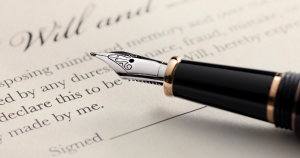
There are many circumstances in which it is appropriate or necessary for a person to establish a family or discretionary trust – for example, to hold investments, operate businesses, enhance their asset protection.
When establishing a discretionary trust often little or insufficient regard is given to the future succession of the trust. That is, who will fulfil the role of Trustee, Appointor or Guardian if the presently named person or persons die or lose mental capacity, leaving them unable to continue to act in the role?
This is particularly important when a trust is operating under an older trust deed, as many older deeds only provide for the replacement of an Appointor and or Guardian upon their death, with no provision for who is to take over this role should the present incumbent lose their mental capacity to continue in this role.
Further, the removal and/or appointment of the Trustee is most often undertaken by the Appointor. Significant problems can arise in the not uncommon situation where the person named as Appointor is also the same person who is named as Trustee.
If any such deficiency in the trust deed is identified whilst the incumbent Trustee, Appointor and Guardian retains their mental capacity, then subject to the terms of the trust deed, it may be able to amended the trust deed to provide for a successor Appointor and/or successor Guardian in the event of the death of the incumbent or should the incumbent lose their mental capacity to continue in their role. However, if the named Trustee, Appointor and or Guardian has already died or lost the mental capacity to continue in their role and the trust deed only provides that the Appointor and/or Guardian can replace themselves, then this results in a dilemma which may be challenging and expensive to resolve.
In some instances, the Court may be able to intervene to appoint a new Appointor and ensure that the administration of the trust is able to continue, however this will incur not insignificant legal costs. Additionally, the Supreme Court of Western Australia held in the matter of Blekinsop v Herbert [2017] WASCA 87 that the Court only has the power to remove a Guardian if the Guardian has a fiduciary power pursuant to the terms of the trust deed.
Where the Appointor has a valid Enduring Power of Attorney in place (or an Administrator has been appointed by the State Administrative Tribunal) then, depending on the terms of the Enduring Power of Attorney under which they are acting or the Orders made by the State Administrative Tribunal, the Attorney or Administrator may have the legal authority to act in the Appointor’s stead.
Where the Trustee, Appointor, or Guardian has lost their mental capacity to the extent that they can no longer fulfil their role and the trust deed does not make or adequately make provision for the succession of the role of the Trustee, Appointor and or Guardian, the trust could well fall into a stalemate where certain decisions cannot be made for the trust until such time the Appointor and or Guardian dies, allowing their replacement subject to the trust deed.
The important lesson here is that one cannot establish a discretionary trust and then ignore it – it is critical to firstly ensure that when the trust is established that the terms of the trust deed:
- are relevant and appropriate for the purpose at hand;
- contain adequate powers to amend the trust deed; and
- contain appropriate provisions for the succession of the key roles of Trustee , Appointor and Guardian in the event that the incumbent dies or loses mental capacity to a degree that prevents them from continuing in the role.
Once the trust is established it is prudent to regularly review the trust deed to ensure that it is fit for purpose with the passage of time and family, investment or business developments. Failure to do so can prove to be expensive and arduous.
Bowen Buchbinder Vilensky has the expertise and experience to review and advise you in relation to your existing trust deeds as well assist in the preparation of new trust deeds.
Contact Bowen Buchbinder Vilensky by telephone on 08 9325 9644 or by email Bfoale@bbvlegal.com.au





